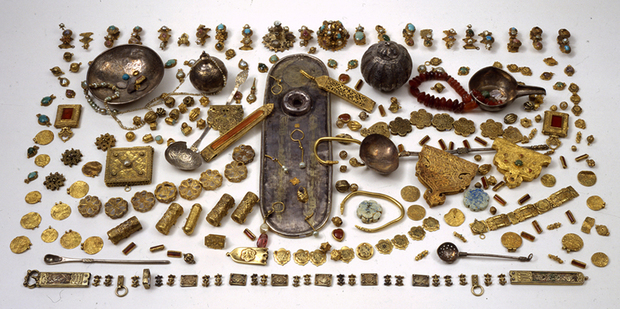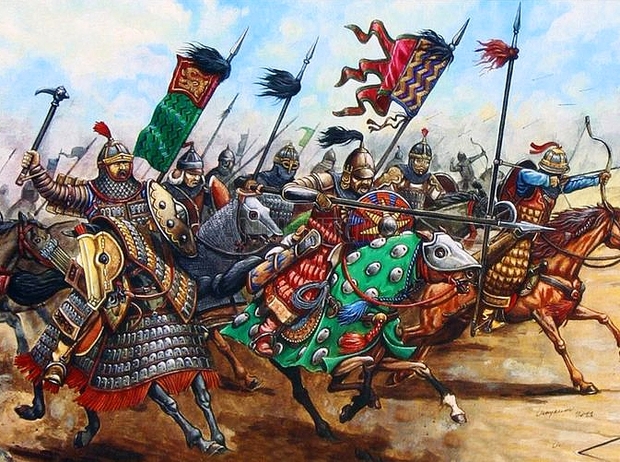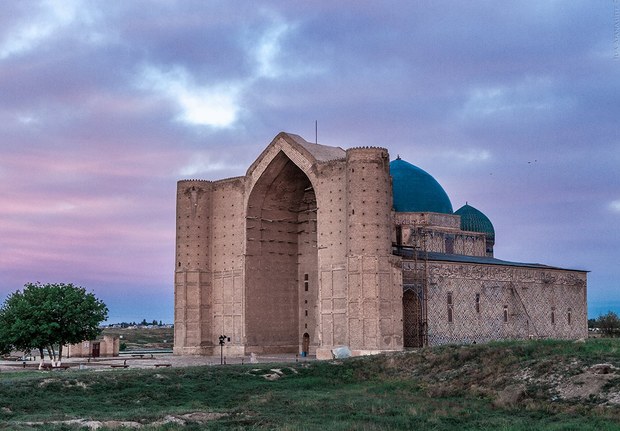‘The Golden Horde was the forerunner of the tolearnce model, which today both Kazakhstan and Tatarstan are proud of’
Is it true that after the coup attempt in Turkey Kazakhstan has started to close all the Gülen schools? How do the representatives of the radical sect Ata Zholy insult Islam? Who is more worthy to be called the descendant of the Golden Horde? A famous Kazakhstani political scientist, an expert of the International Turkic Academy Timur Kozyrev agreed to answer the questions of Realnoe Vremya.
'Academic' award for Mr Shaimiev and strong ties with the Turkic world
Mr Kozyrev, could you tell our readers about the International Turkic Academy, an expert of which you are?
It was founded in 2010 by the initiative of the President of Kazakhstan Nursultan Nazarbayev. The Academy was opened by the presidents of Kazakhstan and Turkey — Nursultan Nazarbayev and Abdullah Gül.
The Academy received the status of an international organization two years ago, and now it operates as one of the four structures of the Turkic Council: there are TÜRKSOY in Ankara, TURKPA in Baku, the Turkic Academy in Astana and the Center of the World Nomad Games in Bishkek. Four members of the Turkic Council — Azerbaijan, Kazakhstan, Kyrgyzstan and Turkey — the four founders, on behalf of which we act as an international organization.
Our other name is TWESCO, which means Turkic World Educational and Scientific Cooperation Organization.
The main objective of the Turkic Academy, as our head Darkhan Kydyrali formulates it, is the scientific integration of the Turkic-speaking spaces, that is, the exchange of information between scientists, the holding of joint activities, and ultimately the formation of a common intellectual environment and research agenda.
'The Academy received the status of an international organization two years ago, and now it operates as one of the four structures of the Turkic Council.' Photo: akorda.kz
I will specify that when we speak of the 'Turkic world', you should understand it not in a narrow ethnic sense — we mean all those with whom the Turkic peoples had and have today contacts, cooperation, it is a huge Eurasian space, which is included in the scope of activities of the Turkic Academy.
We have scientific contacts not only with the academies of sciences of Turkic-speaking states and republics, but also with the academies of sciences of Russia, China, scientists from the U.S., Mongolia, and Hungary. We are also planning to establish contacts with India. We do not confine ourselves to the Turkic world in the narrow sense of the word.
I would like to tell about our cooperation with the Academy of Sciences of the Republic of Tatarstan, which is one of the most important strategic directions of our work. The leadership of the Academy decided to award the first President of the Republic of Tatarstan, a State Counsellor of the Republic of Tatarstan Mintimer Sharipovich Shaimiev for his outstanding contribution to the development of Turkic world and its science, closer ties of scientific communities of the fraternal countries and republics.
What has been achieved by the Academy over these years?
A kind of real agenda has already started to develop, we have held a large number of scientific events, in particular, international symposium on synergy at the Silk Road in the General Assembly of the UN, we have held a memory event of Korkyt Ata in UNESCO, our President D. K. Kydyrali has recently participated in the World Congress of Mongolian Studies (the Mongolian world and the Turkic world are almost inseparable in the history), we also published a large number of scientific papers.
Does the modern model of tolerance originate in the Golden Horde?
Quite provocative question: in your opinion, who can be called the successor of the Golden Horde to a greater extent? The Tatars or the Kazakhs? Or, as Valery Tishkov said, 'it will be sufficient for both Kazakhstan and Russia'?
I like the point of view that there will be enough for both. The Golden Horde was the great Eurasian Empire, known for its multi-ethnic composition of population, its religious tolerance. In fact, we can rightly say that in some sense it was the forerunner of the model of tolerance, which today both Kazakhstan and Tatarstan are proud of — we have largely similar experience. We can consider carried out by our leadership policy in this area as our original civilizational identity.

For example, for Kazakhstan, it is obvious that if we perceive ourselves as one of the heirs of the Golden Horde, then both ethnic Kazakhs and representatives of any Turkic ethnic group living in Kazakhstan can be proud of. A representative of the Slavic ethnic group can also recall the Eurasian essence of the Golden Horde, about the position of many Russian scientists — from V. O. Klyuchevsky to L. N. Gumilev, who acknowledged largely a positive role of the Golden Horde in the Russian history.
Thus, in the 'Golden Horde' view, the concepts 'Kazakh' and 'Kazakhstani' are the essences, organically transferring from one to another, in fact, there is no place for contradistinction. The same is true for Tatarstan.
Dear Valery Tishkov, a leading Russian specialists on ethnic policy said 'will be enough for both Kazakhstan and Russia'. But when he said about Russia, he probably meant both Tatarstan and Russia as a whole. And even in the latter context it also have grounds because there is a well known fact that the Moscow government also has certain Horde roots.
In fact, in Eurasia it is a very fertile topic for all constructive endeavors, and the only thing we should avoid is an unhealthy statement of question. A father can have several children and they are all equally his children and brothers to each other.
What do you think about ethnogenetics? In your opinion, is there any use to conduct such research?
It is a very complicated issue. On the one hand, of course, there are unhealthy political speculations on the results of such research. It is almost impossible to avoid, but still it is impossible to abandon them completely.
For example, Kazakhstan experts have recently found that the majority of Kazakh tribes have very real historical ancestors. Moreover, the majority of the ancestors of major tribal groups — the representatives of the Golden Horde nobility. This fact has a large value to society.

Kazakhstan experts have recently found that the majority of Kazakh tribes have very real historical ancestors. Moreover, the majority of the ancestors of major tribal groups — the representatives of the Golden Horde nobility. Photo: ancientcivs.ru
For the sake of establishing of this kind of historical facts it makes sense to conduct such research.
At the same time, it is not quite right to say that 'the Tatars are at 90% Finno-Ugric peoples', 'the Belarusians are half Balts' or something of that kind, because there are boundaries of ethnic groups, and there are the boundaries of genetic populations of the species Homo Sapiens, and those lines are not the same anywhere in the world.
When we conduct genetic studies, it is more correct to talk about genetics of a population, not about the genetics of ethnic groups, nations and so forth, as a nation or ethnic group is a human community, which at its core is still cultural, not biological in nature.
Radicals and sects in Kazakhstan
There is the famous Mausoleum of Khoja Ahmed Yasawi in Kazakhstan, where often the representatives of the sect of Ata Zholy go to pray...
This sect really exists, its activity is banned in Kazakhstan and in the Russian Federation. They speculate on the religious ignorance of people, the sect also has property interests, as always in such cases.
Is it true that the adherents of this sect go to pray to this mausoleum? How do the authorities deal with it?
From the point of view of Islam, of course, it's wrong, but since the Republic of Kazakhstan is a secular state, for the government agencies the mere fact that someone came from somewhere to pray for someone — it's a private matter in some sense.
Although, it should be noted that the order of carrying out religious rites are regulated by the Law of RK 'On religious activities and religious associations'.
Another thing is that the followers of Ata Zholy break the law. From the point of view of Kazakhstan state, the main problem is not where they carry out their rituals but the fact that they are engaged in illegal activities, in particular, take the property away of citizens, have a negative impact on society, on families.

What is the situation with radical movements in Kazakhstan?
In Kazakhstan there are radical cells, which are mainly concentrated in regional centres in the west of the country. In the early 2000s, they were associated with the extremist underground of the North Caucasus and now, perhaps, retain these relationships to some extent.
It is disparate groups, few in number, but everyone knows what can do even one person without special training. Accordingly, several professionals are capable of much more evil, so you should not underestimate this threat in any case.
Now they use modern technology, including information ones, focus on products that can be found on the Internet, in particular, materials of Daesh (banned in Russia – editor's note).
According to one of the main versions, the terrorist attack in Aktobe was associated with the performance of one of the ideologists of Daesh. By the way, in Kazakhstan we call this terrorist organization this way, not ISIS, because, first, it is not Islamic, and, secondly, it is not a state – it is a terrorist group that has managed to capture a certain part of the territory. Even if they call themselves 'Islamic state', then that's their business, nobody is obliged to watch what they like or not.
Mr Kozyrev, maybe the question is not the most pleasant — about the Gülen schools in Kazakhstan. Is it true that after recent events they are being closed?
I can only say what is known officially: the President of the Republic of Kazakhstan N.A. Nazarbayev clearly stated that the activities of the lyceums will be carefully checked. In case if any destructive elements will be identified, they will implement meausures. At the same time, these lyceums are working according to Kazakhstan educational programs, and over 90% of academic staff is citizens of Kazakhstan. Besides, these educational institutions are known for the quality of education. That's all I can say on this issue.